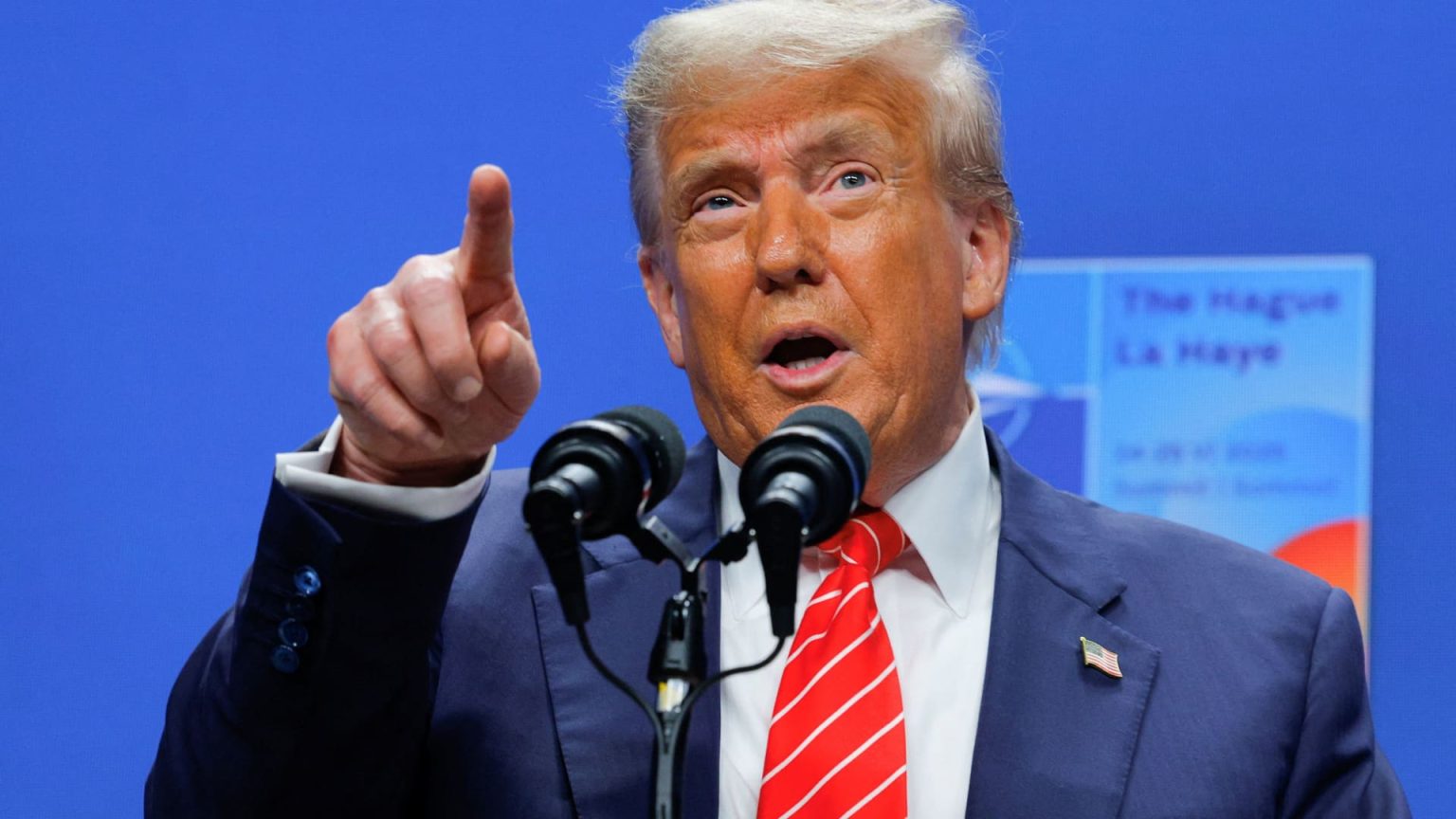In recent remarks at a NATO summit in the Netherlands, U.S. President Donald Trump criticized Spain for its refusal to meet the NATO defense spending target of 5% of its gross domestic product (GDP). He indicated that Spain’s unwillingness to commit to this goal would have ramifications for future trade negotiations between the United States and Spain. Trump’s statements followed NATO’s agreement to increase defense spending, highlighting the ongoing tensions regarding fiscal responsibilities among member nations.
| Article Subheadings |
|---|
| 1) Trump’s Remarks on Spain’s Defense Spending |
| 2) Reactions from Spanish Leaders |
| 3) NATO’s Defense Spending Increase |
| 4) Implications for Trade Relations |
| 5) Broader Geopolitical Context |
Trump’s Remarks on Spain’s Defense Spending
At a press conference during the NATO summit, President Trump did not hold back in expressing his views regarding Spain’s defense commitments. He called Spain’s decision not to increase its defense spending to the proposed 5% of GDP by 2035 “terrible.” According to Trump, this lack of commitment is particularly alarming considering the current state of Spain’s economy, which he characterized as thriving. He implied that Spain stands to lose significant economic stability if it fails to contribute adequately to NATO’s collective defense.
The President’s comments underscore a broader frustration expressed by the United States regarding member nations that do not meet NATO’s financial obligations. He stated, “You know what we’re going to do? We’re negotiating with Spain on a trade deal and we’re going to make them pay twice as much — and I’m actually serious about that.” This stark warning adds pressure to Spain to rethink its defense budget allocations.
Reactions from Spanish Leaders
In response to Trump’s remarks, Spanish Prime Minister Pedro Sanchez reaffirmed Spain’s commitment to NATO, albeit expressing that the current level of defense spending, which stands at 2% of GDP, is “sufficient, realistic and compatible with the welfare state.” Sanchez also pointed out that Spain plans to meet NATO’s new capabilities targets, which are essential measures for collective defense among member states.
While Trump’s approach appears to put pressure on Spain, Sanchez thanked NATO allies for respecting Spain’s sovereignty and its decision to allocate resources in a manner that aligns with national priorities. This public disagreement highlights underlying tensions between U.S. expectations and European realities regarding defense spending and national budgets.
NATO’s Defense Spending Increase
The backdrop of Trump’s comments comes after NATO allies reached a consensus to more than double their defense spending target from 2% to 5% of GDP by 2035. This announcement was made in a joint declaration emphasizing unity in the face of security threats, with particular reference to growing concerns about Russia’s assertiveness and the persistent threat of terrorism.
NATO Secretary General Jens Stoltenberg noted that the increase in spending was a necessary step to ensure that the alliance is prepared for contemporary security challenges. However, the new target heightens scrutiny on member countries that have been slow to adjust their budgets, indicating that those like Spain must recognize their share of responsibility.
Implications for Trade Relations
Trump’s insistence on using trade negotiations as leverage may change the landscape of U.S.-Spain relations. By threatening to impose penalties in trade talks due to defense budget shortcomings, Trump is aligning economic and security policies. This could lead to strained economic relations, particularly as Spain is a vital trading partner in southern Europe.
The potential for a more stringent trade agreement could impact Spanish businesses, especially exacerbating tensions in industries dependent on U.S. markets. As negotiations unfold, both countries will have to navigate their mutual interests while addressing the defense spending issue that has intertwined with economic factors.
Broader Geopolitical Context
The ongoing dynamics between NATO allies and U.S. leadership reflect broader geopolitical themes in international relations. Issues related to military spending, economic agreements, and national sovereignty will continue to shape interactions between the U.S. and its European counterparts.
Many analysts observe that the pressure on European nations to up their defense spending is part of a larger strategy to counter threats from adversaries like Russia. NATO has maintained that such an increase is not just about meeting benchmarks but enhancing security across the Euro-Atlantic region.
In light of these developments, nations will have to balance external pressures with internal political and economic realities. This delicate balance is becoming increasingly important as global tensions mount, and alliances are tested.
| No. | Key Points |
|---|---|
| 1 | President Trump criticized Spain for not meeting NATO’s 5% GDP defense spending target. |
| 2 | Spanish Prime Minister Pedro Sanchez defended current defense spending as adequate. |
| 3 | NATO has agreed to increase its defense spending target to address security threats. |
| 4 | Trade negotiations may be impacted by Spain’s defense spending decisions. |
| 5 | The situation highlights broader geopolitical dynamics and pressures in NATO relations. |
Summary
The recent statements made by President Trump during the NATO summit have opened a dialogue not only about defense commitments but also about the economic implications for U.S.-Spanish relations. As NATO allies seek to address collective security challenges, individual nations face pressure to meet rising expectations. How Spain navigates its defense budget in the wake of these developments will likely have lasting effects, both in its domestic policies and international trade relations.
Frequently Asked Questions
Question: What is NATO’s defense spending target for member nations?
NATO has recently agreed to raise its defense spending target from 2% to 5% of GDP by 2035 in response to emerging security challenges.
Question: Who is the Prime Minister of Spain?
The current Prime Minister of Spain is Pedro Sanchez, who has defended the country’s current defense spending as adequate.
Question: How might U.S.-Spain trade relations be affected by defense spending issues?
President Trump’s comments suggest that Spain’s reluctance to increase its defense budget could lead to more stringent trade negotiations, potentially impacting various sectors of the Spanish economy.


